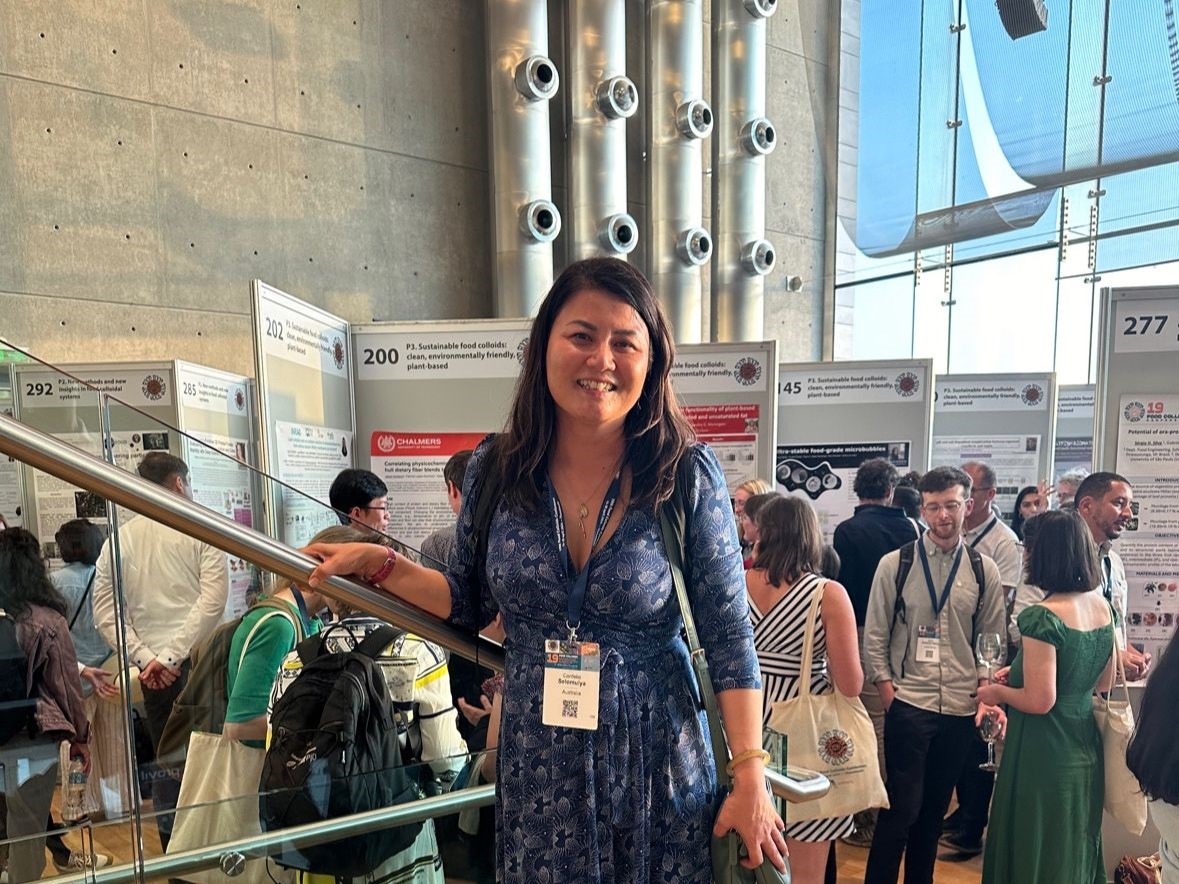Future Food Systems Program and Project leads including Cordelia Selomulya, David Tissue, Oula Ghannoum and Hoon Han have been travelling the world in recent weeks, sharing knowledge, forging connections and promoting FFS’s collaborative research along the way.
Cordelia Selomulya: Sharing research and forging collaborations across the globe
Since March, UNSW Faculty of Engineering Professor and Future Food Systems’ Research and Commercialisation Director Cordelia Selomulya has been travelling the world, disseminating her research findings and fostering constructive academic collaborations across China and the EU.
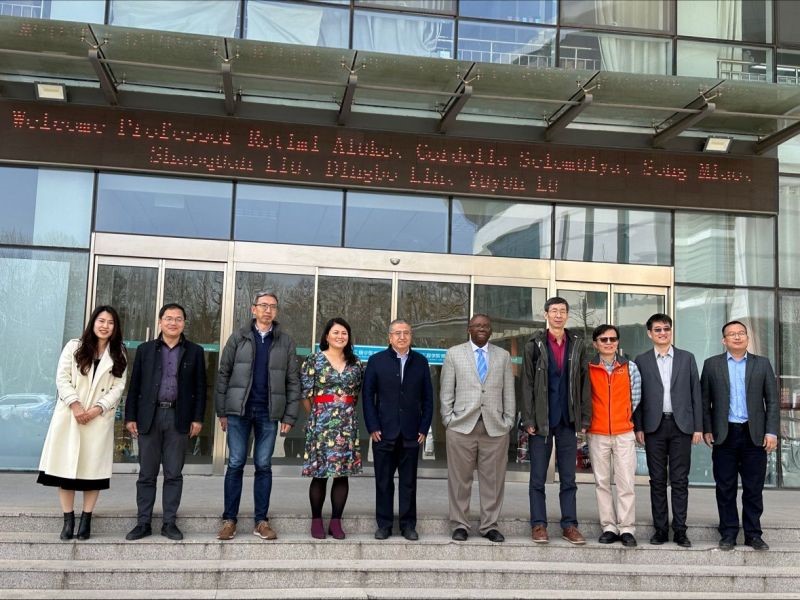
Prof. Cordelia Selomulya (fourth from left) with invited professorial guests from around the world, during a March 2024 visit to Qingdao Agricultural University. Image courtesy of Cordelia Selomulya
In China, she visited Qingdao Agricultural University along with other invited professors from across the world, including from Teagasc, Ireland; the National University of Singapore; Oklahoma State University, USA; University of Manitoba, Canada; and The Chinese University of Hong Kong.
The trip included “visiting Professor Jimmy Yun at his very impressive start-up Qingdao CQ New Energy Technology Co and their manufacturing plant on next-gen hydrogen fuel cells and hydrogen storage with Copton Technology”, Prof. Selomulya said.
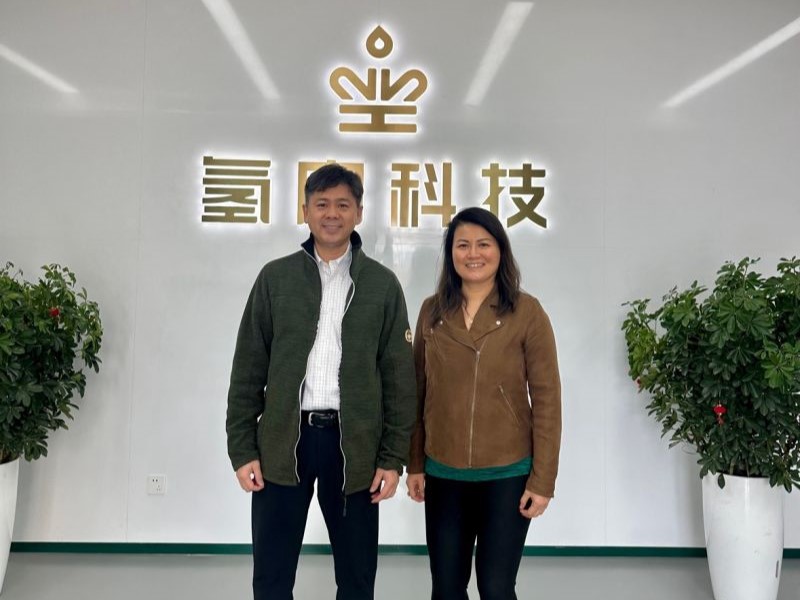
Prof. Cordelia Selomulya caught up with colleagues during her March 2024 visit to China. Image courtesy of Cordelia Selomulya
“I also visited Professor Xiao Dong Chen at XD Pro-Health Ltd near Suzhou, which has developed an entire system to accurately mimic the human digestive system, among other innovative food technology devices,” she said.
“It was very inspiring to hear about their journey on successfully spinning out companies from R&D over the years – truly research with impact!”
Germany
As part of a European trip in April, Prof. Selomulya visited Professor Lutz Mädler and his team at the Leibniz-Institut für Werkstofforientierte, part of the University of Bremen in Germany, “to talk about particle formation at vastly different temperatures (~150 C versus 1600 C) for different applications (food versus metal) via spray process – drying versus melting or forming,” Prof. Selomulya explained. “It was very interesting to see fireworks happening at droplet scale!”
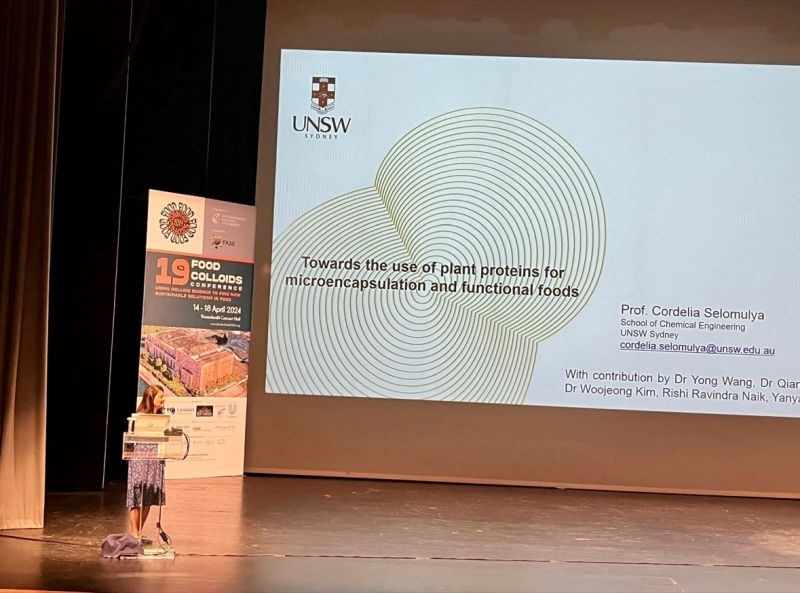
Prof. Selomulya presenting at the Food Colloids conference in Greece on her April 2024 visit to the EU. Image courtesy of Cordelia Selomulya
Greece
In mid-April, Prof. Selomulya was a guest of the 19th Food Colloids conference in Thessaloniki, Greece.
“[I was] honoured to give the first keynote on the strategies to improve the functional properties of plant protein and mixed proteins at the start of the 19th Food Colloids: Using colloid science to find new sustainable solutions in food’ [conference] at Thessaloniki Concert Hall [on] the spectacular waterfront,” Prof. Selomulya said. “[It was] a jam-packed schedule of scientific talks discussing everything from processing and functionality of plant proteins, oleogels, hollow protein particles, amyloid fibrils, biodegradable coatings, and many others, and finishing with a bustling poster session.” For more information on the Food Colloids conference, click here.
While in Thessaloniki, she paid a visit to Perrotis College, the American Farm School in Thessaloniki, where she was hosted by Associate Professor Kiki Zinoviadou. “Here, I learned about the immersive programs for study abroad students and faculty, including [programs on the] Greek wine business, regenerative agriculture, new product development and marketing for the agrifood sector, and many others,” she said in a recent Linked In post.
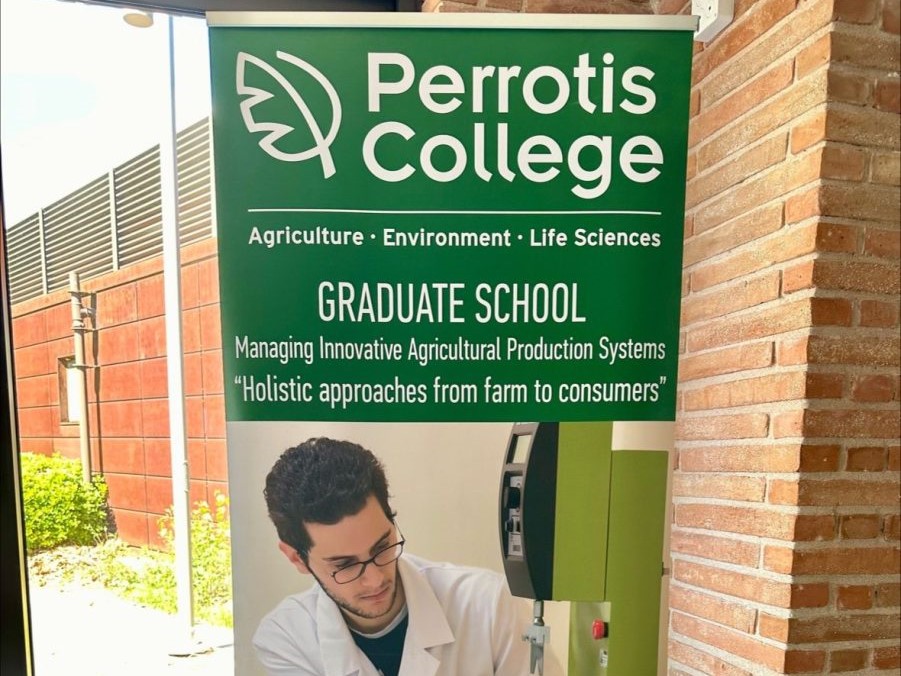
Prof. Selomulya’s visit to Perrotis College, Thessaloniki, Greece in April 2024. Images courtesy of Cordelia Selomulya
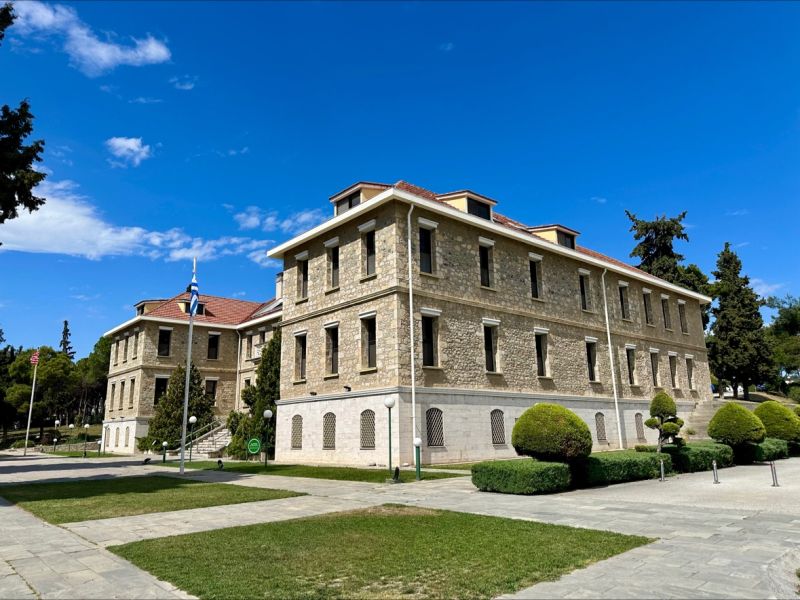
In April, Prof. Selomulya also became a Fellow of the prestigious Institute of Food Technologists (IFT). She was one of one of just 10 new Fellows appointed to the IFT in 2024. Read more at UNSW engineer elected to this prestigious institution.
Montreal, Canada
Prof. Selomulya’s international speaker commitments continue in May with a trip to Montreal, Canada, where she’ll present a Day 1 talk entitled ‘Towards the Use of Plant Proteins for Microencapsulation & Applications in Functional Foods’ at the Future of Food: Innovation, Challenges and Perspectives Symposium on 16 and 17 May.
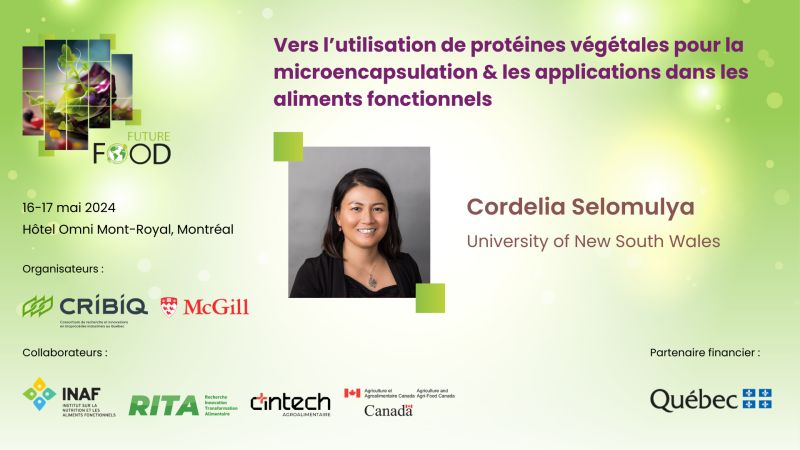
Prof. Selomulya is one of the speakers at an upcoming symposium in Montreal. Canada. in mid-May 2024. Image courtesy of Cordelia Selomulya. via Linked In
To register for the two-day Symposium and hear Prof. Selomulya speak, click here.
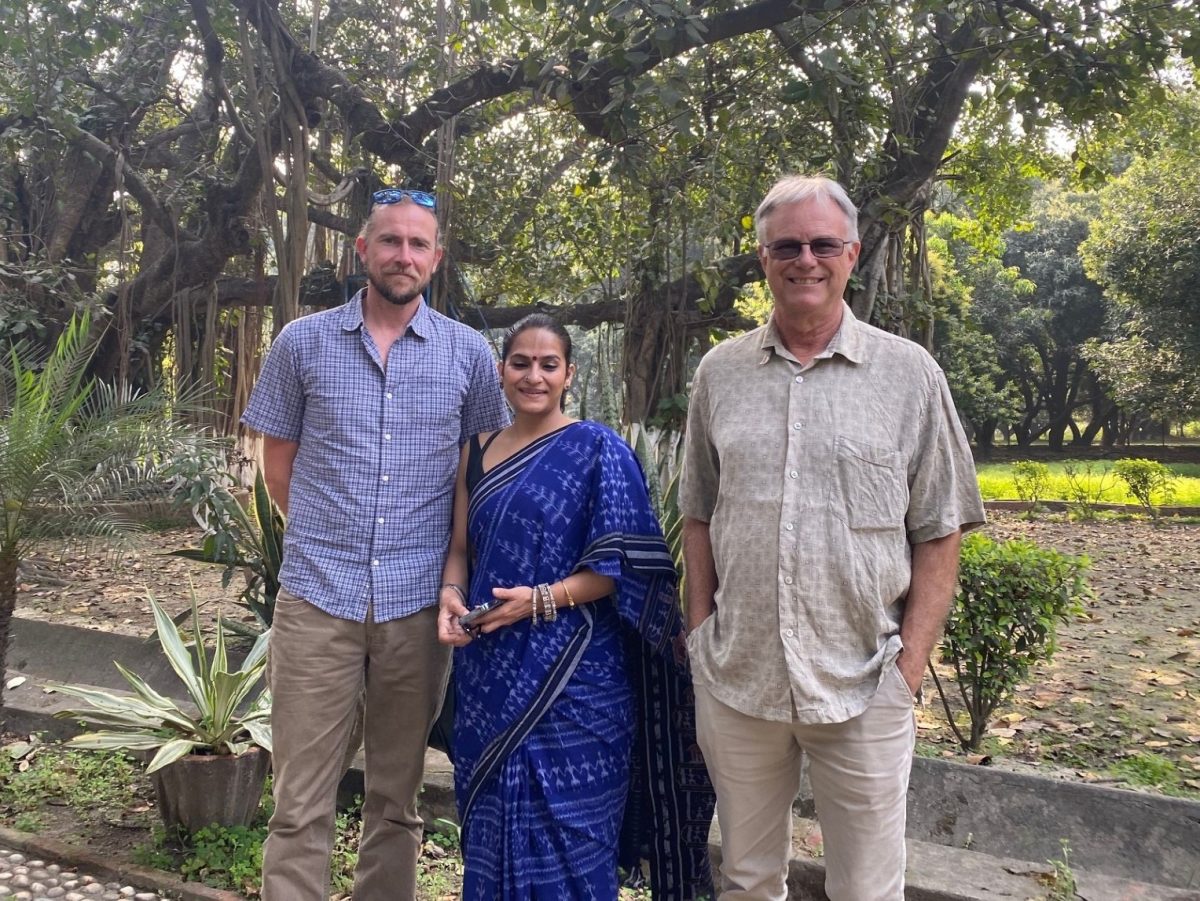
Dist Prof. David Tissue with colleagues in India, March 2024. Image courtesy of David Tissue
David Tissue, Oula Ghannoum: Fostering ties with prestigious research institutions across India
In March 2024, Western Sydney University-based crop scientists including Distinguished Professor David Tissue, Director of the National Vegetable Protected Cropping Centre (NVPCC) at WSU’s Hawkesbury Institute for the Environment (HIE) and Future Food Systems Research Program Leader (Future Farming), visited India with HIE colleagues Professor Oula Ghannoum, Associate Professor Uffe Neilsen and Dr Nisha Rakhesh.
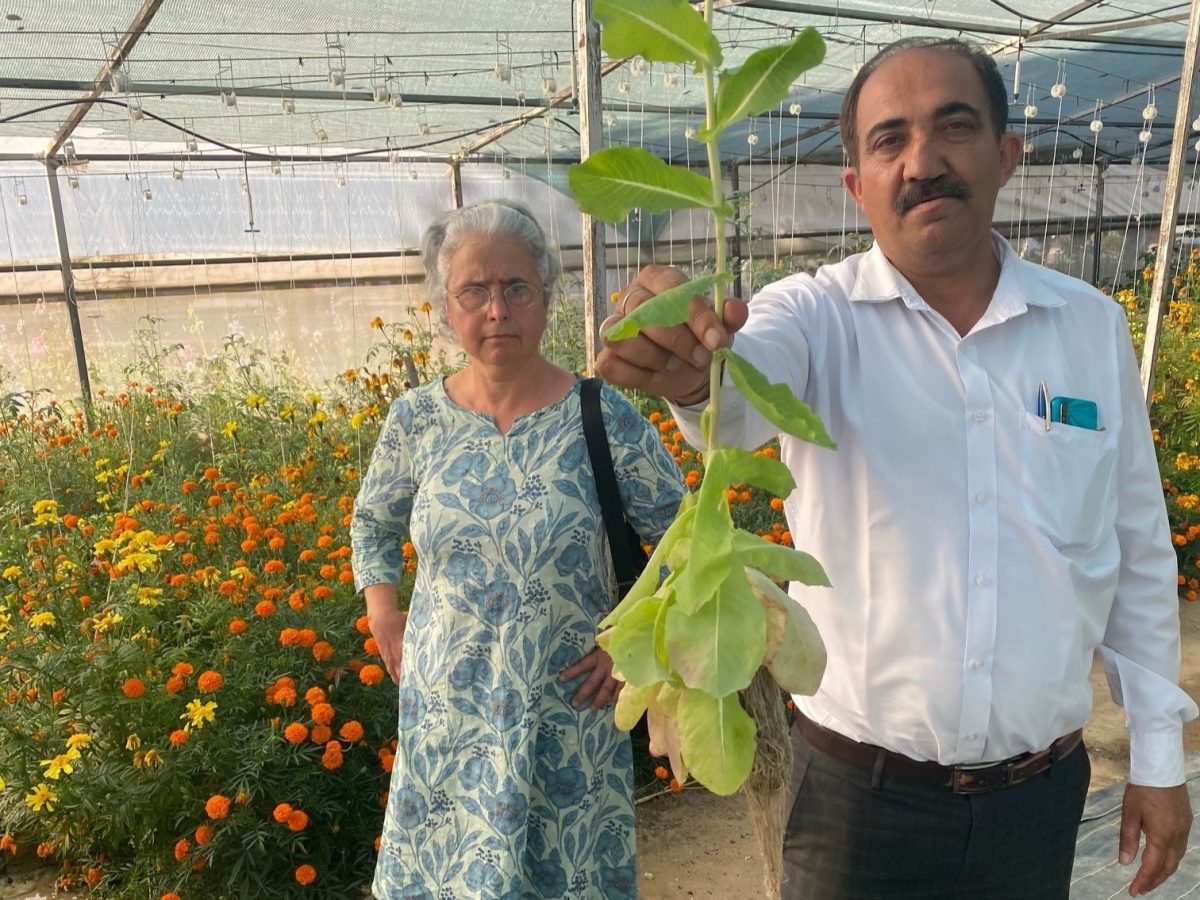
WSU Professor Oula Ghannoum (left) tours an experimental facility, India, March 2024. Image courtesy of David Tissue
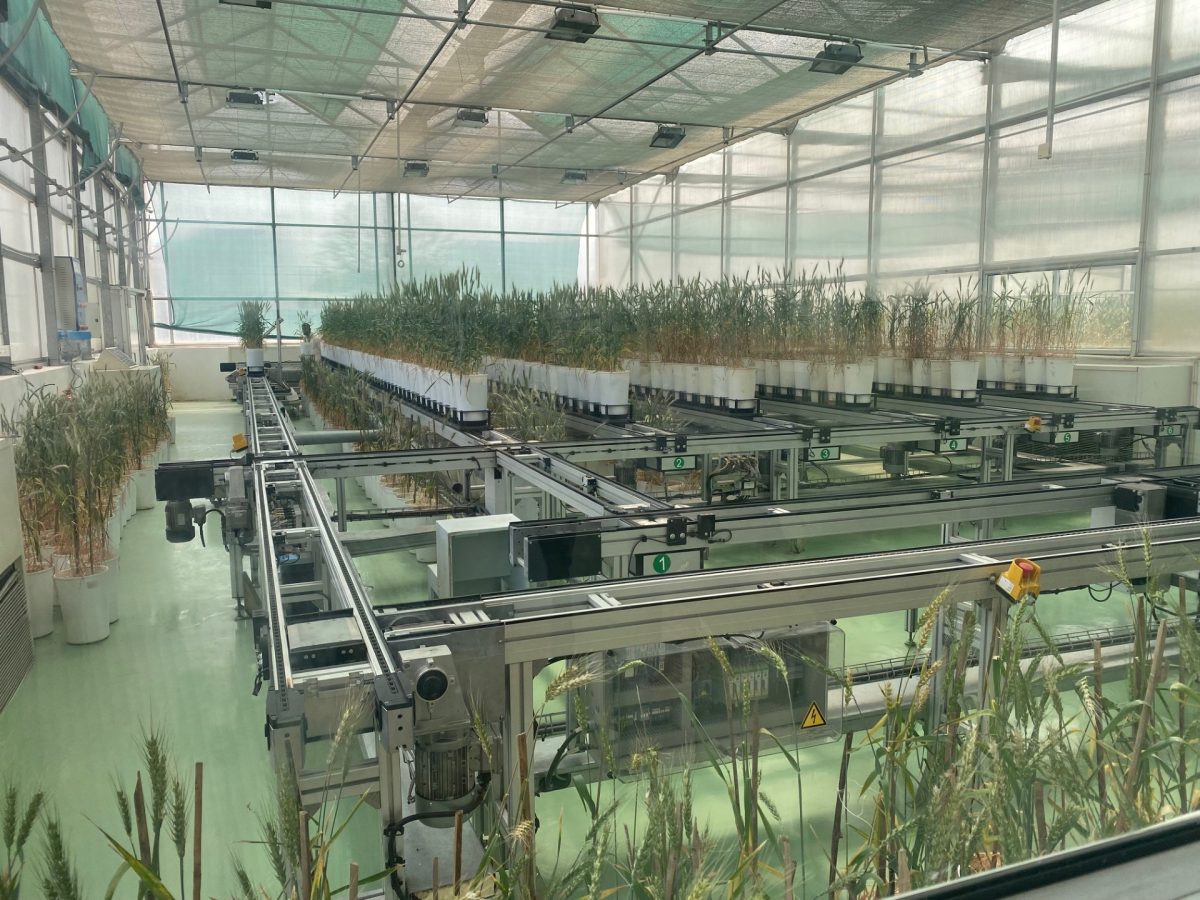
Experimental cropping facility, India, March 2024. Image courtesy of David Tissue
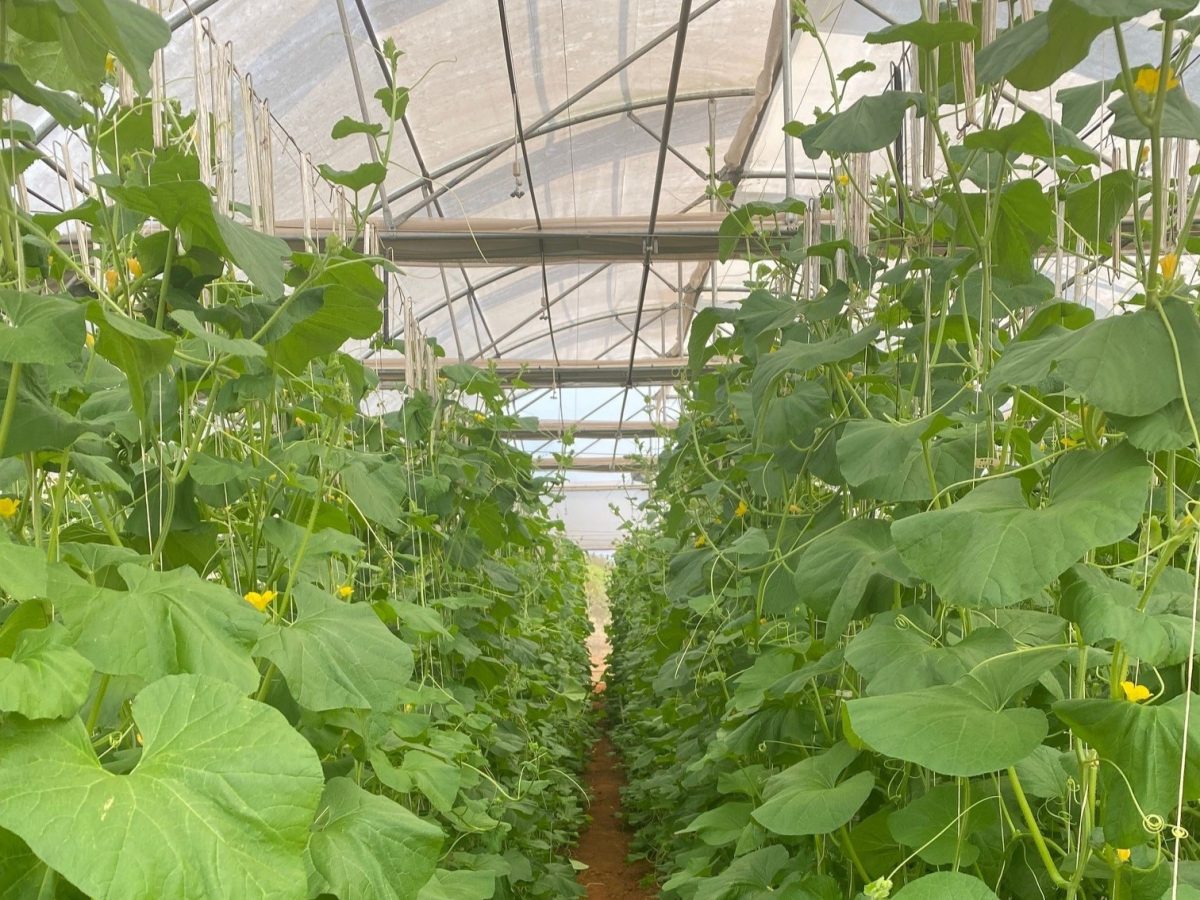
A greenhouse walkthrough, India, March 2024. Image courtesy of David Tissue
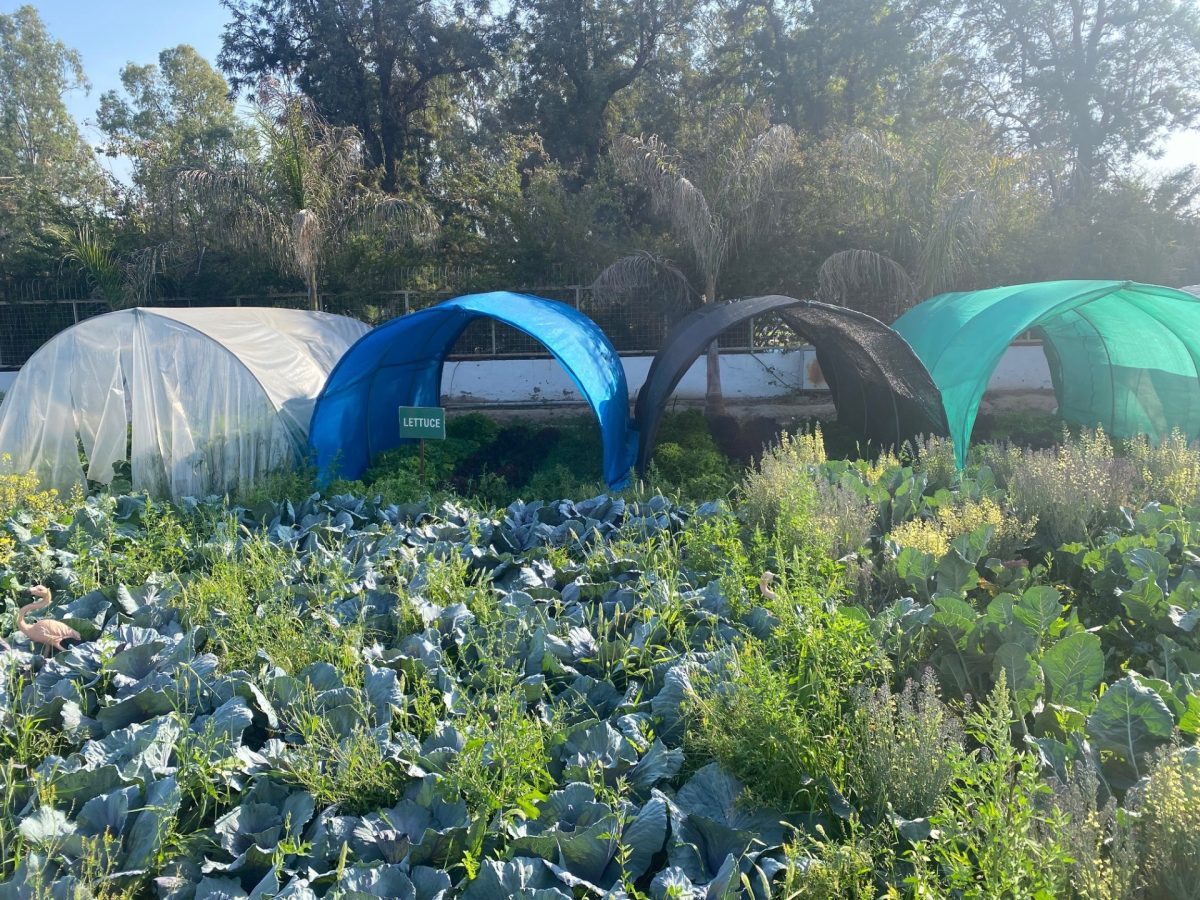
Polytunnels, India, March 2024. Image courtesy of David Tissue
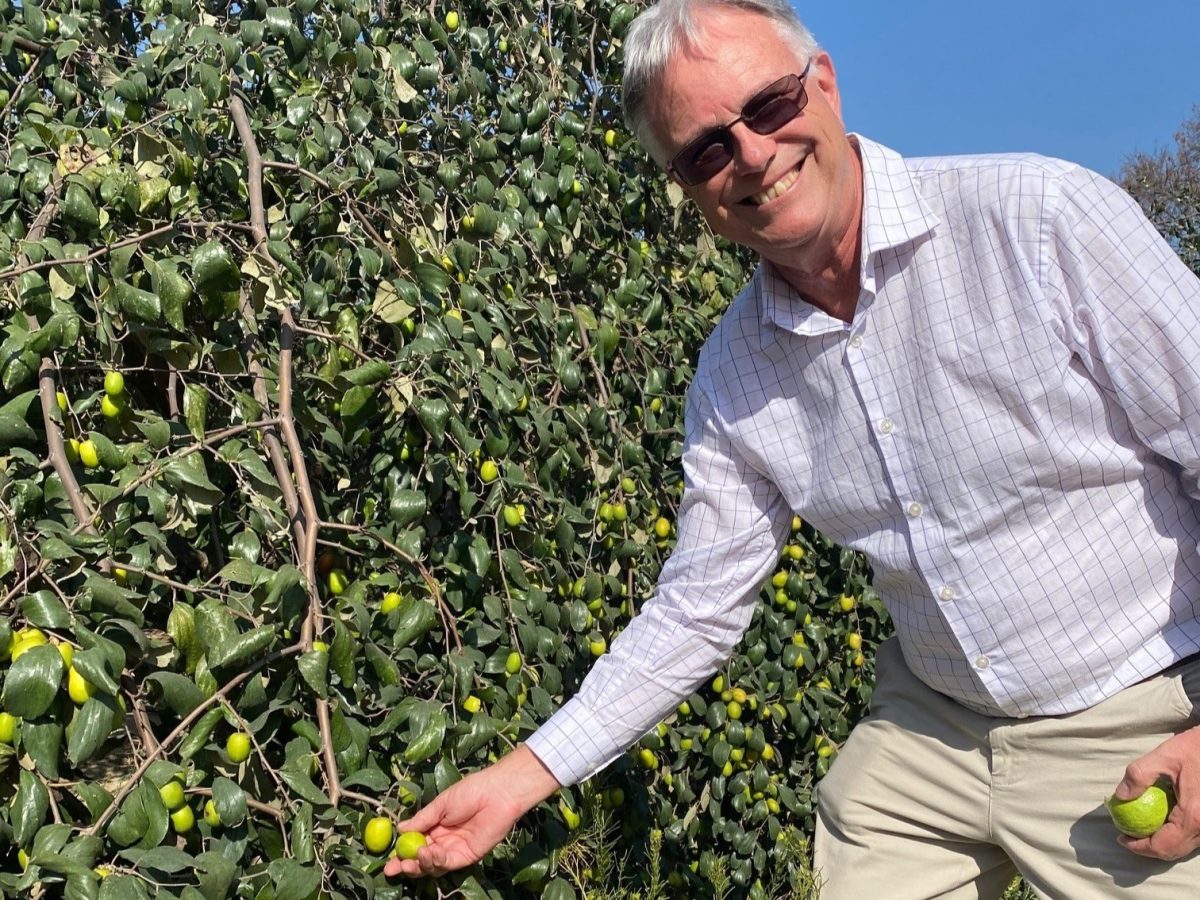
Dist Prof. David Tissue investigates a local plant species in India, March 2024. Image courtesy of David Tissue
Here, they met with fellow crop scientists – researchers and students – at multiple universities and institutes to develop new research collaborations, funding opportunities and PhD projects. On the itinerary were visits to the University of Agricultural Sciences and Indian Institute of Horticultural Research in Bangalore; the Indian Agricultural Research Institute (ICAR) and Haryana Agricultural University (HAU) in Delhi; and Govind Ballabh Pant (GB Pant) University in Pantnagar.
The delegation, including Senior Research Program Officer in Western Sydney University’s New Delhi office, Kopal Choubey, discussed the progress of the ongoing joint MRes and PhD dual degree programs and other areas of potential collaboration with the HAU Vice-Chancellor and other senior university officials.
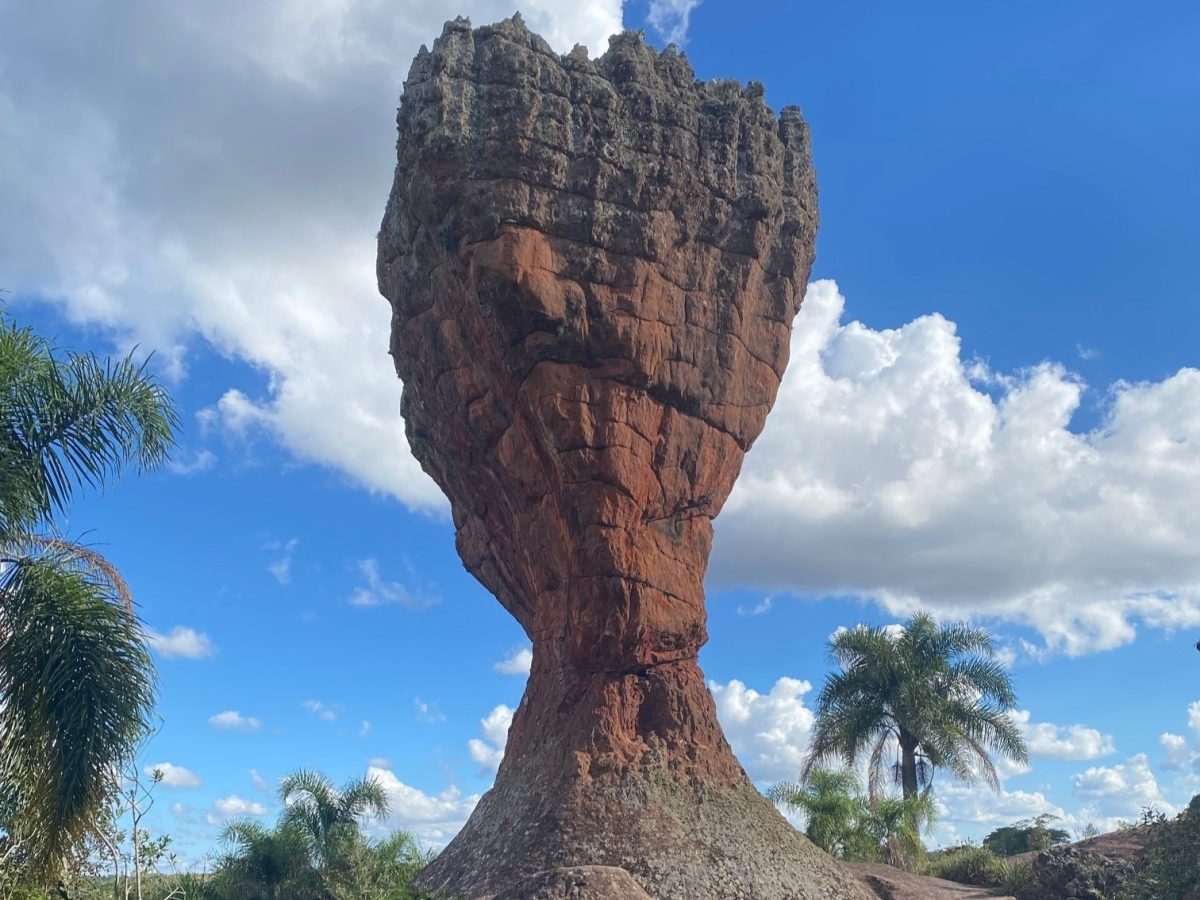
A geological formation rises from a remnant of tropical grassland, Paraná, Brazil. Credit: David Tissue

Iguaҫu Falls, Foz do Iguaҫu, on the border of Argentina and Brazil, is the largest waterfall system in the world. Credit: David Tissue
David Tissue: Exploring new research collaborations and funding opportunities with Brazil
En route back to Australia, Dist. Prof. Tissue also took a side trip to Brazil along with Hawkesbury Institute for the Environment (HIE) Chief Scientist, Dist. Prof. Ian Wright and Assoc. Prof. Nielsen. The three WSU scientists visited as guests of the Araucaria Foundation; their purpose of the trip was to explore the development of new research collaborations, funding opportunities and PhD projects with a series of university and government researchers across Brazil.
View the ceremony on the Araucaria Foundation’s Youtube channel (below).
The delegation travelled to multiple destinations within Brazil, including Curitiba, Camp Largo, Guarapuava and Foz do Iguaҫu. View more photos from the trip.
The first PhD candidate from Brazil, who will be supervised by Dist. Prof. Tissue and colleague Professor Brendan Choat, is due to commence at HIE in November 2024.
Read all about the trip in the article ‘Mission of Foreign Researchers takes place in Paraná‘.
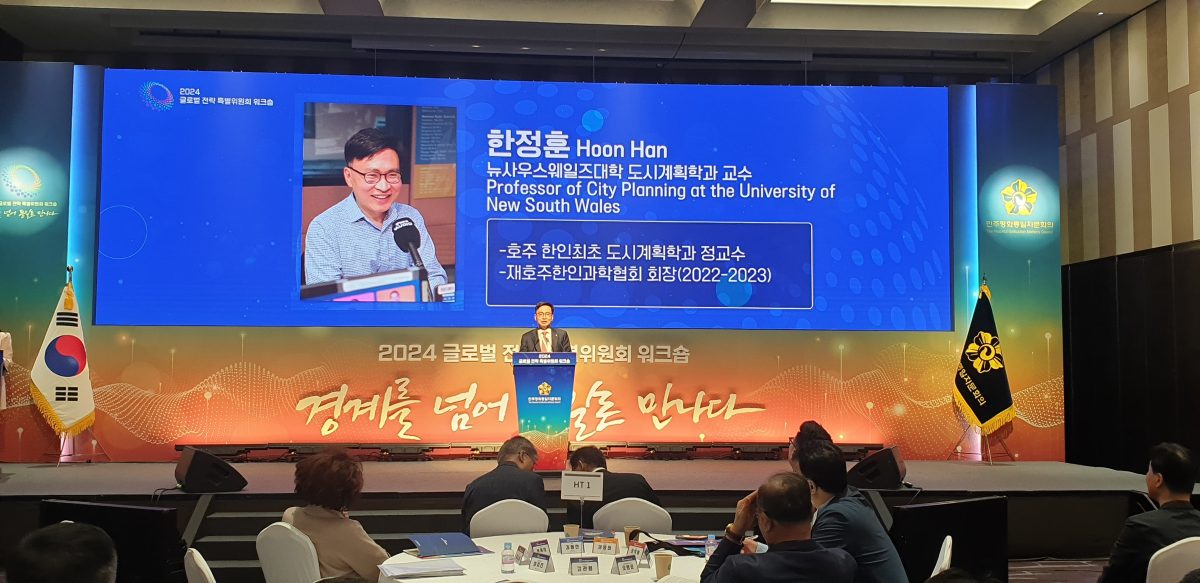
UNSW Professor Hoon Han represented the research strength of the City Analyics Lab at UNSW Sydney, including his research developing AI-enabled tools to aid in urban and regional planning,on the global stage in Seoul in May 2024. Image courtesy of Hoon Han
Prof. Hoon Han: Representing UNSW’s capabilities in city and regional analytics in the Republic of Korea
Over the first week in May, UNSW Professor of City Planning Hoon Han paid a visit to his home nation, the Republic of Korea (RoK, formerly South Korea).
In July 2023, Professor Han was officially appointed by RoK President Yoon Suk Yeol as an advisory committee member of the RoK’s Global Strategy Special Committee. “This was a great honour,” Prof. Han told Future Food Systems.
“During the committee’s first workshop in Seoul last week, I represented UNSW as a global university, highlighting its research and development – R&D – capacity in city and regional analytics,” he said.
Prof. Han is Director of the Australian Housing and Urban Research Institute (AHURI) and Associate Director of the City Futures Research Centre (CFRC) within UNSW’s School of Built Environment.
As research lead of the FFS-backed ‘Namoi agribusiness planning’ project, Prof. Han developed a sophisticated multi-criteria tool to help local planners ascertain the most suitable sites for proposed agribusiness and related infrastructure across the region, with potential to extend the land-use planning tool to other regions. The project also led to a follow-up PhD project around freight transport planning in the region.
Lead image: In mid-April, Prof. Selomulya was a guest of the 19th Food Colloids conference in Thessaloniki, Greece. Image courtesy of Cordelia Selomulya.


